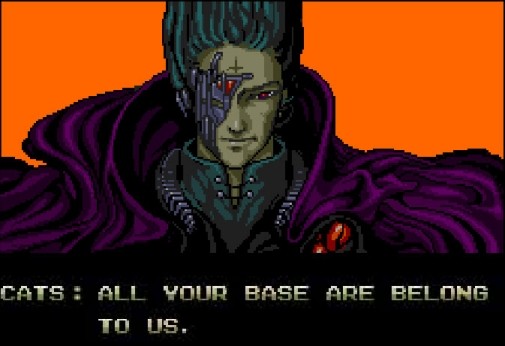Video Game Translation – How Bad Is It?
30th October 2016
Recently, we discussed how professional translation and localisation increases sales, but what about bad translation? While pictures of bad menu translations get shared across social media and no doubt raise a few smiles, what happens when the translation and localisation is so bad, it becomes unrecognisable when compared to the source material?
It’s hard to imagine why, with today’s technological advances and access to resources, poor quality translations exist. Quick translations done via Google Translate can be forgiven if someone simply wants to get the gist of a Facebook post or product description on a website, but shipping a product, or publishing documentation without proper quality controls is inexcusable.
The video games industry, especially Japanese localisation for the Western market, seems to have had more than its fair share of bad translation over the years, from the now internet famous 1989 game Zero Wing to the more recent 2014 game Sword Art Online: Hollow Fragment.

The fact that terrible translation still exits has given Destructoid cause to write an article about the above mentioned Sword Art Online: Hollow Fragment entitled “The worst video game translation job ever”. Giving such examples as: “Well, it’s was tough since in flies around too” and “Klein became to one who did the fight without everyone noticing it”, series producer Yosuke Futami stated that he was aware of the poor quality of the translations – “Ah, right, the English translations in Sword Art Online: Hollow Fragment weren’t that good, huh?…we’re aware of the root of the problem and what I can say is that this time around with Lost Song, we’re doing things differently. Fans can expect much better translations as the localization process will be handled very differently.”
Admittedly, fans of Japanese games are used to these issues when it comes to the foreign versioning and localisation and accept that it is sometimes the price you pay for not being able to understand the Japanese original. In some cases, the translation is so bad, the game manages to find a larger fan base due to the unintentional humour the translation provides.
However, while Japanese games may be a niche market, would Yosuke Futami be able to get away with such poor quality with any other product? Given the relative in-expense of translation and localisation when compared to the total cost of a product, from design to manufacturing to marketing, it’s inexplicable as to why translation is so often ignored.
Commercial quality translation should be at the forefront when it comes to developing a product or documentation for overseas markets. While clients and customers may not see or appreciate the hours of research and development that have been put in at the initial stages, they will spot poor quality translation immediately, in the same way a person will notice a scratch on their car or tear in a book cover – these visual impairments reduce not only customer satisfaction, but the perceived overall value and quality of the end-product and brand.
Foreign Tongues has been providing commercial quality translations to the marketing and market research sector for over two decades and therefore we know the importance of adding value to your brand.
Contact us now to discuss your next project and discover how easy it is to get your translation and localisation right, first time!
